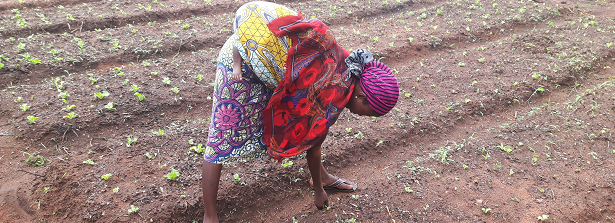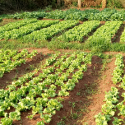How a stakeholders’ committee can make a difference in the way of doing research?

Donald Houessou works for ACED Benin and is involved in the NWO Global Challenges Programme (GCP) project called “Allotment gardens and food security in urban Africa”. He has written this Story of change following the GCP training on November 1, 2017, facilitated by Perspectivity.
A story about developing allotment gardens in Benin
Key messages
- A stakeholders’ committee can make the way of doing research successful.
- By actively and formally involving the stakeholders in the research process, they may provide instrumental solutions to operational challenges faced by research teams.
- A convincing story line of the benefits of allotment gardens on food security is not sufficient to secure the support of the cities’ authorities.
- There is need to establish a legal framework to compel policies to include urban agriculture into the city planning.
What is the context?
This story of change highlights how a committee of stakeholders can change and make the way of doing research successful. Our project is about enhancing urban food security through the development of allotment gardens in and around the cities of Benin. An allotment garden is a form of urban agriculture where a plot of land is allocated to a group of individuals and families – usually poor – to produce their own food. To achieve the objective of the project, we planned to develop two allotment gardens in two cities – Cotonou and Porto-Novo – in Benin.
What assumption was challenged?
We were looking for one hectare in each city to develop the allotment gardens. We also planned to randomly recruit 20 urban poor citizens per site to benefit from the activities; a requirement for our research. We assumed that, by sharing a convincing story of the benefits of allotment gardens on food security with the cities’ authorities, we would easily obtain the two sites. However, seven months after the project kicks off, it turned out to be difficult to identify and secure appropriate sites to develop the allotment gardens. This difficulty might be explained by the fact that urban agriculture is not among the priorities of these cities.
What was our contribution?
To actively involve all stakeholders in our research process, we set up a committee of stakeholders during the inception of the project. The committee is formed by the representatives of the municipality, the local agricultural agency, the association of gardeners, of each city, and a representative of the ministry of agriculture. The committee serves as a knowledge-sharing platform. This is where the research team can easily share preliminary findings and encountered challenges with representatives of the target groups who will benefit from the research findings. It also allows the stakeholders to give their opinions, provide feedback on the findings, and make suggestions to address the challenges. It is a way to co-create innovative and impactful solutions to the problems of food insecurity tackled by our project.
Hence, to solve our challenge, the stakeholders’ committee suggested to link up directly with the wards’ heads within the cities instead of with the central authorities. They know the surroundings of the cities much better than the central authorities.
What was the result?
We succeeded in identifying and securing the two sites in a few weeks. This achievement challenged our assumption and proved that a convincing story line of the benefits of allotment gardens on food security is not sufficient to secure the support of the cities’ authorities. In addition, this achievement brings out the necessity to design a regulatory framework to compel policies to include urban agriculture into the city planning.
So, what?
This unintended and positive change in the management of the research process provided an additional insight in designing a co-creation process in a research program. It shows how a stakeholders’ committee can support researchers in finding solutions to their operational problems.
_ _ _
Acknowledgments
This story of change is a knowledge product of the Centre d’Actions pour l’Environnement et le Développement Durable (ACED) developed with the financial support of the Netherlands Organisation for Scientific Research (NWO-WOTRO) through its Food & Business Global Challenges Programme.
- Read about the training and download the story of change (in English): http://www.aced-benin.org/en/content/capitalizing-stories-change-during-research-process
- Read about the training and download the story of change (in French): http://www.aced-benin.org/fr/content/capitaliser-les-histoires-de-changement-au-cours-du-processus-de-recherche
- Download more ACED publications at: http://www.aced-benin.org/en/publications






